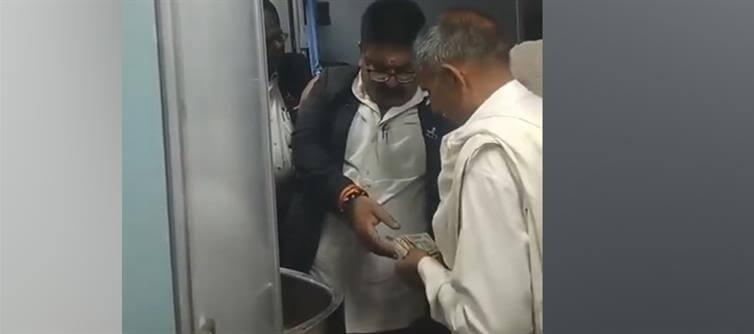
What has truly shocked netizens is not just the act itself, but what it represents: a deeper, systemic rot that exists at the grassroots level of public service. If such blatant bribery is occurring in broad daylight on a moving train, people are left wondering how much more is happening out of sight, and in how many other departments. The TTE, who is entrusted with the responsibility of upholding travel norms and ensuring smooth passenger experiences, instead used his position to exploit. This kind of ground-level corruption erodes public faith in even the most basic institutions of governance and civic service.
The viral video has led many to raise serious questions about the scale and depth of corruption in the system. If such practices are normalized or go unpunished at the lower levels, the public can’t help but speculate about what happens at the higher rungs of bureaucracy and politics, where stakes—and amounts—are far higher. The incident has reignited the demand for stricter surveillance, real-time audits, and wallet PLATFORM' target='_blank' title='digital-Latest Updates, Photos, Videos are a click away, CLICK NOW'>digital monitoring of frontline employees to ensure transparency. More importantly, it has underscored the need for ethical training and a cultural shift in public service that emphasizes accountability over authority.




 click and follow Indiaherald WhatsApp channel
click and follow Indiaherald WhatsApp channel